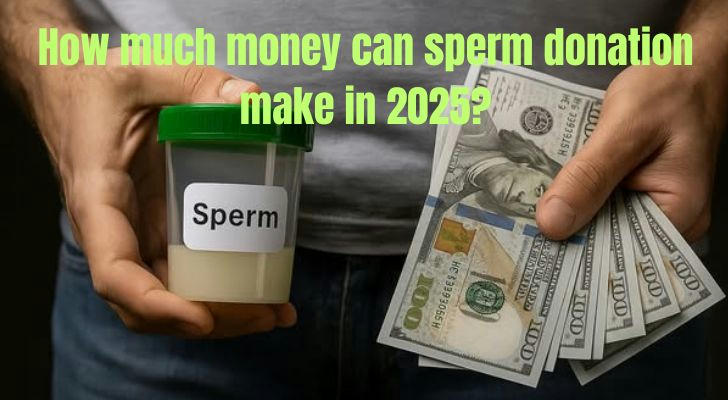Understanding Sperm Donation: Who Qualifies and How Much You Can Earn
Sperm donation is a regulated and medically supervised process that supports individuals and couples facing infertility or other reproductive barriers. In the United States, healthy, qualified men can apply to become donors through licensed sperm banks and fertility clinics. In addition to contributing to family-building efforts, donors may receive compensation for their time and commitment.

What Is Sperm Donation?
Sperm donation involves providing semen samples that are frozen, tested, and stored for future use in assisted reproductive procedures such as intrauterine insemination (IUI) or in vitro fertilization (IVF). Clinics operate under strict FDA and state-level health guidelines, ensuring both donor and recipient safety. In many cases, donated sperm offers the only path to biological parenthood for patients, making this a significant and impactful act.
Who Can Become a Donor?
While each facility sets its own eligibility criteria, most U.S. sperm banks require donors to:
- Most accept ages 18–39, but some institutions have more flexible limits, like Cryos International, allow up to 44.
- Have no genetic or chronic illnesses
- Maintain good physical and mental health
- Provide a high-quality semen sample
- Commit to donating regularly for several months
Some programs may also prefer donors with a college education or current university enrollment. The screening process is comprehensive, often including:
- Detailed personal and family medical history
- Physical examination
- Semen analysis
- Blood and urine testing
- Genetic screening for inherited conditions
- Testing for infectious diseases (e.g., HIV, Hepatitis B/C)
How Does the Process Work?
Application
Begin by submitting an online or in-person form through a licensed clinic or sperm bank.Initial Screening
Includes a semen analysis to check sperm count, motility, and morphology.Comprehensive Evaluation
Medical and genetic testing, background check, and physical exam.Approval and Commitment
Upon acceptance, the donor agrees to a schedule for 6–12 months. Each donation is frozen and quarantined for at least 180 days, then released after a final clearance.
Is Sperm Donation Safe?
Yes, sperm donation is generally considered safe, non-invasive, and low risk. All collection is performed in private, hygienic settings. Donors may experience minor inconvenience, but there are no lasting physical side effects. Emotional factors, such as curiosity about offspring or future identity contact, should be considered. Depending on the program, some donors may remain anonymous, while others may be part of open-ID programs.
Sperm Donor Compensation and Referral Bonuses
Compensation varies by sperm bank and region, please refer to the official website of each sperm bank for the latest information.
- Monthly compensation may reach $720–$1,500, depending on donation frequency.
- Referral rewards Phoenix Sperm Bank, successfully recommends a qualified friend to receive a $500 reward;Alpine Cryobank offers a referral compensation of $200 per successful referral.
How to Get Started
1. Identify reputable clinics or sperm banks
Search directories or check regional hospitals and university-affiliated programs.
2. Submit an application
Most facilities allow online registration with a detailed background questionnaire.
3. Complete screening and approval process
Qualified applicants will proceed to semen testing, a physical exam, and genetic evaluations. Once approved, you’ll begin a donation schedule and receive compensation per accepted sample.
This article is for informational purposes only and does not constitute medical or legal advice. Please consult a licensed healthcare provider or fertility clinic for personalized guidance.
The Ultimate Guide To Where You Can Donate Sperm In All 50 States
